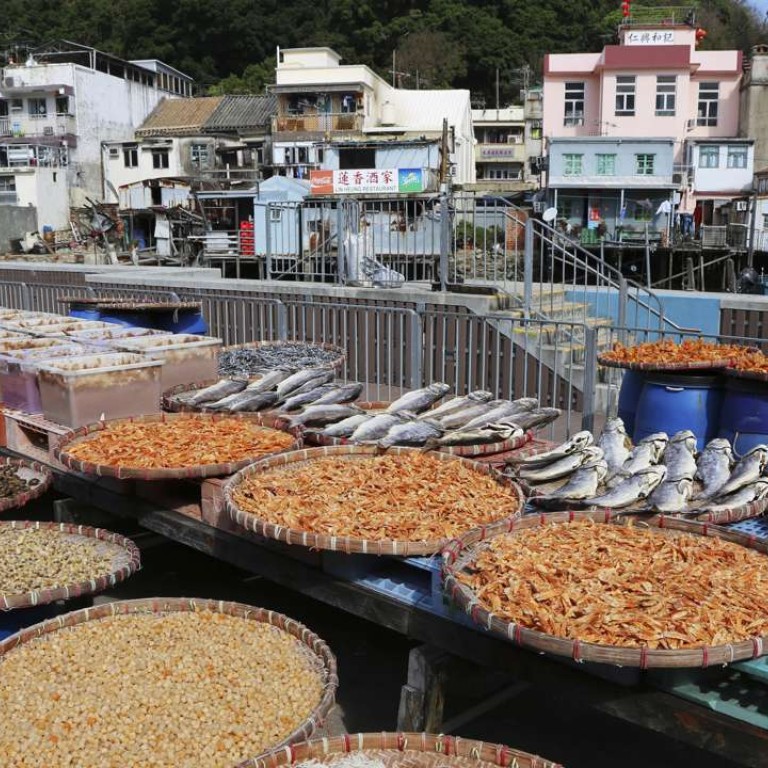
Drying seafood the old-fashioned way in Hong Kong, but for how much longer? Tai O shop’s on borrowed time
In Lantau village famous for its shrimp paste, Chui Chun-wah has expanded his father’s business to sell a range of dried seafood, but at 63 he doesn’t expect his children to take over a trade that calls for him to work every day
Chui Chun-wah goes to the back of his shop in Tai O to check up on the seafood he has drying in the sunshine. There are large salted fish he flips over, meat from sea whelk, oysters, squid, and large dark blue vats filled with fermented shrimp paste.
The 63-year-old is the second generation owner of Yick Cheong Ho, started by his father in 1938 in the village at the western tip of Hong Kong’s biggest island, Lantau. Back then the company only focused on shrimp paste, but has expanded its line of seafood products to include fish maw, abalone, sea cucumber and shrimp roe noodles.
Watch: Tradition amongst change: the beloved Tai O seafood shop and its owner Chui Chun-wah
On the walls of the shop are black and white photographs of him as a child, around eight years old, helping out after school, scraping the scales off salted fish. “When I was young, there was so much seafood; we had to use every available space to dry them out,” he recalls.
In the 1930s, he says, many people in Tai O caught and sold fresh fish, and later they expanded to sell salted fish, shrimp sauce and shrimp paste.

The fishing village used to be a bustling one, with over 20,000 inhabitants, but these days, Chui says, there are only around 2,000 residents. “There aren’t any job opportunities here, so people move out to Tung Chung [in North Lantau] or elsewhere for work.”
Yick Cheong Ho has some good customers – restaurants like the famous roast goase restaurant Yung Kee in the city’s Central business district and Cantonese fine-dining restaurant Fook Lam Moon that have mostly bought salted fish from them for decades, and others buy the shrimp paste to enhance the flavours of their dishes. The rest of the business of dried seafood comes from tourists and people from China, who recently acquired a taste for fish maw because of its collagen content.

Chui says there two or three other stores in Tai O that sell shrimp sauce like his, but Yick Cheong Ho is the only one that has diversified to sell other seafood products. The company also has a shop in Kwun Tong, Kowloon, making it easier for customers, be they local or from China or Southeast Asia, to buy its products.
Chui still does things the traditional way, relying on sunshine to dry his seafood before packaging it for sale. However, the way he does business has completely changed.
“Back then there was no telephone, so people placed orders by writing letters to us,” he says. “We would receive five or six letters a day, mainly for salted fish. Once the orders were put together, we had them delivered by a courier. Nowadays, customers call us to put in orders or even by WhatsApp.”
Despite having modern technology that makes it easier to do business, Chui doesn’t expect his two daughters or son, who are in their twenties, to take over Yick Cheong Ho.

“They have jobs now and I want them to do that. When I can’t continue any more, then they can decide if they want to help me out. It won’t take long for them to learn the business.
“We already own our shop spaces so if they join me, they can make a living. But it’s a difficult job in that you have to be in the shop every day to take orders and produce the dried seafood and shrimp paste and shrimp sauce.”

